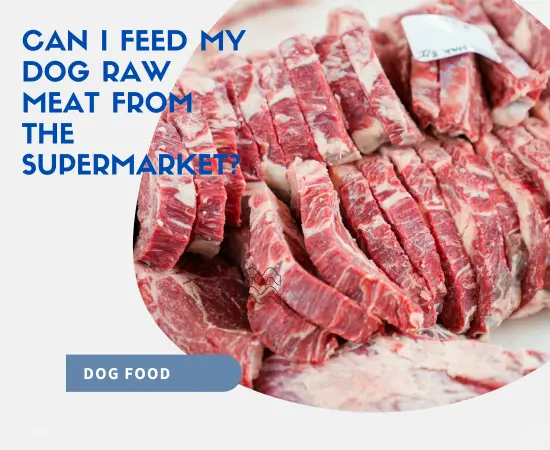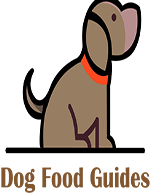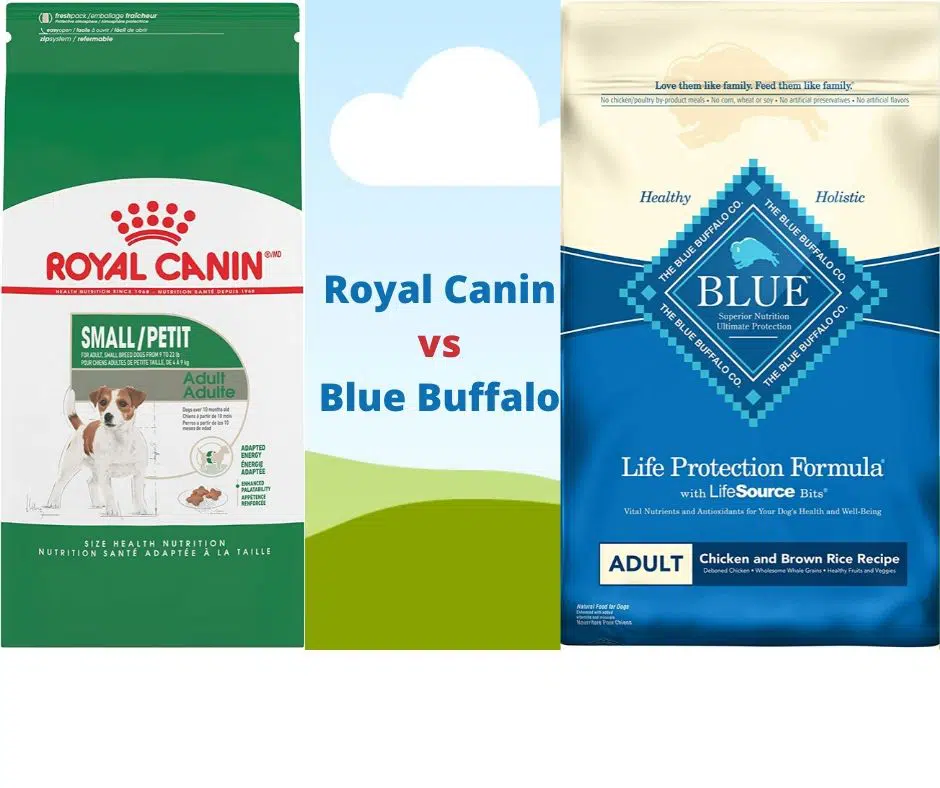This post may contain affiliate links. If you use these links to buy something we may earn a small commission. Thanks.
The question of what we should feed our beloved canine companions sparks widespread debate. One increasingly popular diet strategy involves raw food, often purchased directly from the supermarket. But is this safe and beneficial for your dog?
Understanding the Raw Food Diet
A raw food diet for dogs typically includes muscle meat, bones, fruits, vegetables, and sometimes dairy, eggs, and other fresh foods. Advocates argue that because dogs’ wild ancestors ate raw food, modern dogs should too. Some owners prepare these diets at home, while others buy pre-packaged raw meals. The supposed benefits range from improved digestion to shinier coats, although these claims often lack substantial scientific backing.
Benefits of Raw Meat Diets for Dogs
Supporters of raw meat diets argue that these regimens mimic dogs’ ancestral diets and thus offer several advantages. These may include improved nutrient absorption due to the absence of cooking and processing, healthier skin and coat from natural fats, cleaner teeth from gnawing on bones, and better energy levels and stool consistency due to an overall healthier diet.
Risks and Controversies of Feeding Dogs Raw Supermarket Meat
However, feeding dogs raw supermarket meat isn’t without controversy. Raw meat can harbor harmful bacteria and parasites, putting your dog’s health at risk. Unbalanced diets can lead to nutritional deficiencies or excesses. Bones can cause choking or internal damage. There’s also a risk to human health from handling raw meat, and ethical issues arise regarding animal welfare and environmental sustainability.

The Role of the Supermarket in Raw Meat Diets
Supermarkets provide a convenient source of raw meat. However, there are concerns about the freshness and safe handling of supermarket meats compared to meats sold specifically for pet consumption. Furthermore, supermarket meats may lack the organ meats and other components necessary for a balanced raw diet.
Expert Opinions
Many veterinarians and pet nutritionists express reservations about raw meat diets, especially those based solely on supermarket meat. They emphasize the importance of a balanced diet and caution that raw diets, unless carefully planned, can miss essential nutrients.
Alternatives to Raw Supermarket Meat
If you’re considering a raw diet but worry about the risks, there are alternatives. High-quality commercial raw food diets are designed to provide balanced nutrition while minimizing the risk of harmful bacteria. Another option is home-cooked diets, which allow control over ingredients while ensuring food safety. Any home-prepared diet should ideally be created with the help of a veterinary nutritionist.
Tips for Those Considering a Raw Diet
If you still wish to try a raw diet, keep these tips in mind. Always handle and store raw meat properly to minimize bacterial contamination. Transition your dog’s diet gradually to avoid digestive upset. Ensure the diet is balanced, either by using a commercial raw food or by consulting with a veterinary nutritionist.
How Often Should Dogs Eat Raw Meat?
The frequency at which a dog should consume raw meat depends on various factors, including the dog’s age, size, health status, and overall diet plan. If you are feeding your dog a raw food diet, typically this food will be served in place of traditional dog food, and thus would be given daily, divided into two or more meals. However, if raw meat is used as a supplement to a commercial dog food diet, it should not constitute more than 10-15% of the dog’s daily caloric intake. Regardless of the approach, any dietary changes should be discussed with and overseen by a veterinarian or a pet nutritionist to ensure that your dog’s nutritional needs are being met and that the risk of bacterial contamination or nutrient imbalance is minimized.
Can a dog get sick from eating raw meat?
Yes, a dog can potentially get sick from eating raw meat. Raw meat, whether from a supermarket or other source, can harbor harmful bacteria such as Salmonella, E. coli, and Campylobacter. If ingested, these bacteria can lead to foodborne illnesses, which might cause symptoms ranging from mild gastrointestinal upset to severe vomiting, diarrhea, fever, and even more serious health complications. In addition, raw meat, particularly pork and wild game, can contain parasites that are harmful to dogs. It’s also important to note that dogs with weakened immune systems, such as puppies, older dogs, or dogs with chronic illnesses, are more susceptible to the potential hazards of raw meat. Therefore, any decision to feed a dog raw meat should be made in consultation with a veterinarian or a pet nutritionist who can provide guidance on minimizing risk.
Can I feed my dog human grade raw meat?
Yes, you can feed your dog human-grade raw meat, but it’s important to do so with caution and under the guidance of a veterinary professional or pet nutritionist. Human-grade raw meat can be a part of a balanced, raw-food diet for dogs, but feeding raw meat alone may not provide all the nutrients your dog needs. Dogs also require a balance of fruits, vegetables, and certain grains to get a full range of vitamins, minerals, and other essential nutrients.
Furthermore, raw meat carries a risk of bacterial contamination or parasitic infections, so proper handling and hygiene practices are essential. Lastly, certain meats, like pork, can carry specific risks and may need to be avoided or cooked. Always consult with a professional before changing your dog’s diet significantly.
What raw meat can dogs eat safely?
When incorporating raw meat into your dog’s diet, it’s important to ensure it’s safe and appropriate for your pet. Some suitable options include:
- Beef: Many dogs enjoy raw beef, including organ meats like liver, kidney, and heart.
- Chicken: Raw chicken can be a good source of protein, but be aware that chicken bones can be hazardous if they splinter and are ingested.
- Turkey: Like chicken, raw turkey can provide good nutrition, but be careful with bones.
- Lamb: This is often used in dog food and can also be part of a raw diet.
- Fish: Some fish like salmon, sardines, and mackerel can be great sources of omega-3 fatty acids.
- Rabbit: This is a lean protein and can be a good option for dogs.
Regardless of the type of meat, it’s important to handle and store it safely to minimize the risk of bacterial contamination. Also, remember that raw meat alone doesn’t provide a balanced diet, so it’s crucial to include other nutrients either through supplemental foods or specific pet products. Lastly, be aware that raw pork and wild game should generally be avoided due to the risk of parasites. It’s essential to consult with a vet or a pet nutritionist before making substantial changes to your dog’s diet.
Conclusion
Feeding your dog raw meat from the supermarket has potential benefits, but also notable risks. It’s crucial to make informed decisions based on sound advice when it comes to your pet’s health. Always consult with a veterinarian or pet nutritionist before making substantial changes to your dog’s diet.


